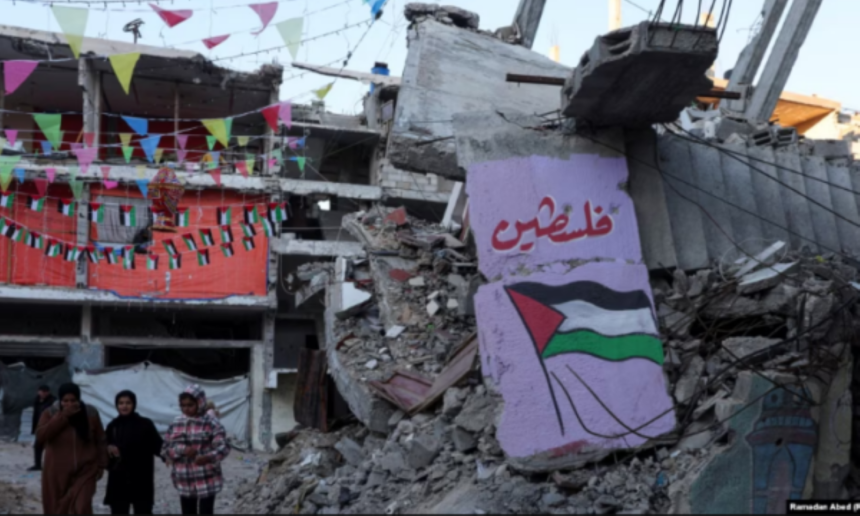Israel has suspended the entry of all goods and supplies into the Gaza Strip on March 2, warning of “additional consequences” if Hamas, the Palestinian group labeled a terrorist organization by the US and EU, does not accept a new proposal to extend the first phase of a fragile ceasefire.
Hamas accused Israel of attempting to deviate from the agreement, calling the Israeli decision to halt aid “blackmail, a war crime, and an outright attack” on the ceasefire agreement. Both sides have not yet declared the ceasefire over.
The first phase of the ceasefire, which included a boost in humanitarian aid, expired on Saturday. Both parties are now negotiating the second phase, which is expected to involve Hamas releasing dozens of hostages in exchange for Israel’s withdrawal and a long-term ceasefire agreement.
An anonymous Israeli official stated that the decision to suspend aid was coordinated with the administration of US President Donald Trump. Israel has expressed support for a proposal by US Middle East envoy Steve Witkoff, which calls for an extension of the first ceasefire phase through Ramadan and a Jewish holiday until April 20.
Under this proposal, Hamas would release half of the remaining hostages on the first day and the rest when a permanent ceasefire agreement is reached, according to Israeli Prime Minister Benjamin Netanyahu’s office.
Hamas has warned that any attempts to vote or annul the existing ceasefire agreement would have “humanitarian consequences” for the hostages, reiterating that the only way for them to be released is through the implementation of the agreement and negotiations for the second phase.
The radical Palestinian group has stated that it is willing to release the remaining hostages within a day in the second phase, but only in exchange for the release of more Palestinian prisoners, a permanent ceasefire, and a complete Israeli military withdrawal.
An Egyptian official revealed that Hamas and Egypt would not accept the new proposal, which was supposed to allow for negotiations for the second phase to begin in early February.
During the first phase, a six-week ceasefire, Hamas released 25 Israeli hostages and the bodies of eight others in exchange for the release of nearly 2,000 Palestinian prisoners held by Israel. Israeli forces withdrew from most of Gaza, and Israel allowed humanitarian aid to enter. However, the first phase was marked by accusations from both sides of violating the agreement.
Hamas launched the war in Gaza by attacking Israel on October 7, 2023, killing 1,200 people and kidnapping 250 others. Since then, more than 48,000 Palestinians have been killed as a result of Israel’s military offensive in Gaza.
In January, both parties agreed to a three-phase ceasefire deal aimed at ending the war.







